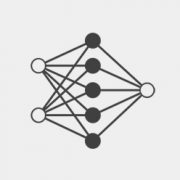Digvijay completed his B.Tech in Mechanical Engineering from IIT Madras in 2014. He has managerial experience in product development and organisational expansion. Post a structured career discovery process and a year long sabbatical, he started working on AI research, engineering and applications. Additionally, he loves mathematics, history, geography and reading AI research content. In his spare time, he plays chess, badminton and basketball and takes flute lessons. He also likes to discuss excerpts from The Bhagavad Gita.






